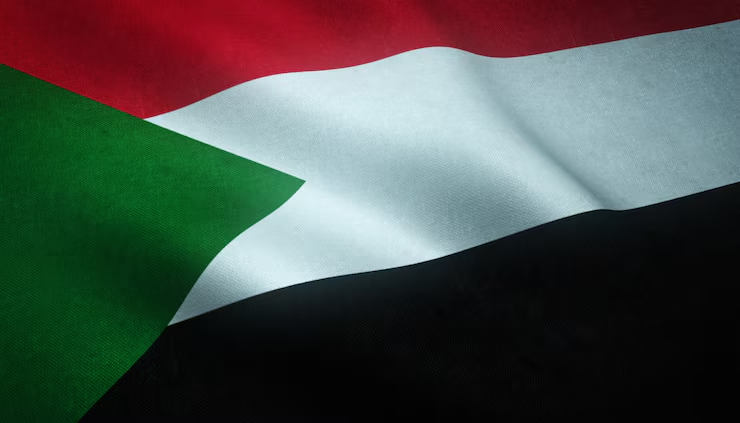Sudan is in the thick of a financial crisis with inflation hitting roughly 143% in May 2025. The local currency is collapsing, with everyday prices doubling overnight. People can’t rely on official channels for remittances or savings anymore. In situations like these, stablecoins which are digital dollars pegged to USD, become a lifeline.
Basically, stablecoin payments in Sudan bring with them a practical hedge against inflation, a way to receive dollars instantly, a solution to avoid unreliable banking systems, and a tool to protect finances when the Sudanese pound is in freefall.
This blog unpacks how USDT in Sudan has become a popular go-to, why crypto in collapsing economies matters, how stablecoins as a currency alternative is taking shape, and how TransFi’s stablecoin access in Sudan is delivering real solutions.
Stablecoin Payments in Sudan
Imagine your paycheck losing value every week. Banks stop honoring USD, remittance fees spike to 25–30%, and cash becomes worthless when there’s no physical supply. This is the reality of people facing financial crises. Sudan’s economy has taken a massive hit with inflation that is unimaginable. Currently Sudanese people are facing not only spiraling inflation and exorbitant remittance costs but banks are also refusing dollars or imposing limits and there is little trust left in official FX rates.
Stablecoin payments in Sudan aren’t about speculative tech anymore, they’re about survival. They offer instant, low-cost access to digital dollars in Sudan, which prove to be a practical inflation hedge and remittance tool. Some popular digital dollars in Sudan include USDC and USDT. They offer:
- Instant transfers via wallet-to-wallet
- Pegged 1:1 to USD
- Low-cost compared to hawala or money exchangers
- Crypto lifeline in Sudan: usable for savings, remittances, busines
By leveraging stablecoin payments in Sudan via TransFi people and businesses can get their remittances instantly and at low costs, hedge against inflation, save themselves from bank distrust and pay anyone across 100+ countries in a fully secure manner.
USDT in Sudan
The Sudanese pound has lost over 50% of its value in the past year. Banks ration dollars. People rely on hawala chains; and they overcharge. But with digital dollars in Sudan, remittances arrive as USDT or USDC in minutes, holders avoid the currency depreciation at each step, you pay 1–2% on blockchain, not 25–30% and you maintain value and purchasing power. USDT in Sudan positions itself as the best stablecoin. Some features include:
- Mass liquidity and availability on many chains
- Works offline via local peer networks
- Exchanges offer on‑ramps even when banking doesn’t
People swap dollars abroad into USDT, send it, and convert locally to pound or spend on essentials. Some Sudanese entrepreneurs accept USDT for imported goods. Families use it for remittances. Freelancers get paid in USDT rather than unstable local currency. Additionally, USDT also acts as an inflation hedge in Sudan, replacing the broken pound instantaneously.
Also read about: Stablecoin Payments in Uganda: Enabling Instant Remittances and Peer-to-Peer Commerce
Crypto in Collapsing Economies
This isn’t just Sudan. Even in Venezuela, Lebanon, and Zimbabwe, economies are collapsing, currencies are becoming worthless and people are turning to crypto. Research shows:
- Global stablecoin supply rose ~28% year-over-year; transaction volume hit $27 trillion.
- African crypto adoption rose ~19.4% in 2025.
- Crypto transfers in Sudan doubled year-over-year.
That growth isn’t random. In each case, crypto in collapsing economies creates fast global remittances, avoidance of capital controls, digital savings shielded from devaluation, protection from local currency collapse, and peer-to-peer trade without reliance on banks.
Stablecoins don’t just lock in stability, but act as a currency alternative when cash collapses. Blockchain's transparency reduces fraud, and even if the internet's spotty, P2P exchanges fill gaps.
Stablecoins as Currency Alternative
Stablecoin adoption in Africa has seen significant growth, with stablecoins now accounting for roughly 43 percent of all crypto transaction volume in Sub-Saharan Africa. Stablecoins like USDC and USDT in Sudan are taking off as alternatives when central banks fail by functioning like USD in your pocket online, allowing you to pay suppliers, freelancers, or importers directly. Many African businesses have already begun to quote prices in USDC/USDT.
Financial crisis and stablecoins is no longer theoretical in these economies; it's practical. Vendors, SMEs, even NGOs in Sudan are leaning on stablecoins to trade and preserve value., as in hyperinflation zones, they currently outperform fiat systems. To use stablecoins as a currency alternative, TransFi is the best platform. It connects you to 100+ countries, 40+ currencies, 80+ digital assets and 250+ local payment methods. In the TransFi wallet you can store, spend and convert stablecoins as well as fiat currencies as well as use them for cross-border payments in an instant, cost-effective and fully compliant manner.
TransFi Stablecoin Access Sudan
TransFi is a cross-border payments platform built on stablecoin rails. It supports USDC and USDT in Sudan, offering instant, low-cost transfers, deep local integration, global compliance as well as seamless B2B payments, remittances and global payroll. TransFi uses on-chain stablecoin rails. You send USD; TransFi converts it to USDT/USDC and routes it to Sudan in minutes. Fees hover around 1–2%, way cheaper than bureaucratic routes. The platform supports 250+ local payment methods. That means a Sudanese recipient can get money directly in mobile wallets, bank accounts, or cash via partners, without leaving their town. Additionally, TransFi includes KYC/AML, auditing, legal layers so that NGOs, businesses, and banks can rely on it, even in Sudan’s gray zone. Companies can pay suppliers abroad, freelancers can receive payments from global clients, and families can send or receive remittances seamlessly via TransFi, without needing expensive bank accounts or forex licenses. On top of that, TransFi connects you to 40+ currencies, 80+ digital assets and 100+ countries, making it the best cross-border payments platform. TransFi stablecoin access in Sudan unlocks a more inclusive financial system and proves to be a part of crypto lifeline in Sudan.
Conclusion
With stablecoin payments in Sudan, people enjoy instant global remittances that bypass broken banks, inflation-resistant savings in digital dollars Sudan, usability of USDT in everyday reality from groceries to business payments and a digital lifeline that works when fiat fails. TransFi provides stablecoin access in Sudan. The platform is powered by stablecoin rails, with compliance, local integration, and global reach. If you're thinking of a reliable way to move money into or out of Sudan while keeping value intact, TransFi is the best choice.
FAQs
1. How do Sudanese citizens use USDT during currency collapse?
They receive USDT from abroad, hold it, and convert it locally via peer networks or apps. It protects from devaluation, enables trade, and powers remittances with low fees.
2. How does TransFi provide seamless digital dollar access during currency crises?
TransFi converts fiat into USDT/USDC on‑chain, routes it across stablecoin rails, integrates with local payment methods in Sudan, and delivers funds in local currency or wallet instantly, all in a compliant and low-cost manner.
3. What are the best stablecoin solutions in unstable African currencies?
USDT leads in liquidity; USDC offers transparency and auditability. TransFi integrates both and makes them accessible. TransFi is indeed amongst the best stablecoin solutions in unstable African currencies.
4. Why is using digital dollars in hyperinflation economies beneficial?
Using digital dollars in hyperinflation economies is beneficial because they maintain value, settle fast on blockchain, avoid government controls, cut remittance and conversion costs and offer transparency as well as usability.
5. What are the best crypto alternatives to fiat in Sudan?
The best crypto alternatives to fiat in Sudan are USDT for liquidity and USDC for audit-backed trust. BTC and ETH can serve as value stores but are volatile and hard to spend. For everyday use, stablecoins as currency alternatives are smarter.
Table of Contents
Suggested Article
Explore our products

Make global payments at the speed of a click

Accept payments, remove borders.

Unlock Seamless Digital Currency Transactions Anywhere
























